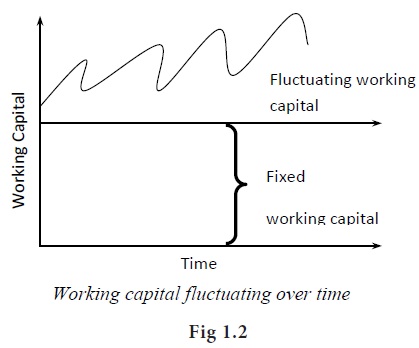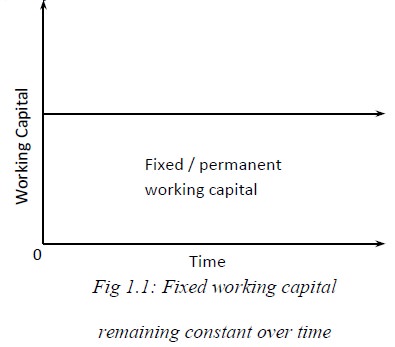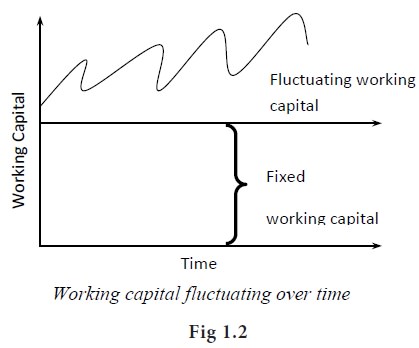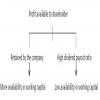Financial Management - WORKING CAPITAL MANAGEMENT
Types of working capital - WORKING CAPITAL MANAGEMENT
Posted On :

Working capital can be divided into two categories on the basis of time:
Types of working capital
Working capital can be divided into two categories on the basis of time:
1. Permanent, fixed or regular working capital,
2. Temporary, variable, fluctuating, seasonal or specified working capital.
This refers to minimum amount of investment required in all current assets at all times to carryout minimum level of activity. In other words, it represents the current assets required over the entire life of the business. Tandon committee has referred to this type of working capital as ‘Core current assets’ or ‘Hard-core working capital’.

The need for investment in current assets may increase or decrease over a period of time according to the level of production. Some amount of permanent working capital remains in the business in one form or another. This is particularly important from the point of view of financing. Tandon Committee has pointed out that this type of core current assets should be financed through long-term sources like capital, reserves and surplus, preference share capital, term loans, debentures, etc.
Leader in two-wheelers Hero Honda Ltd. and in four-wheelers Maruthi Udyog Ltd. keeping their model in each type in their showrooms are typical examples of permanent working capital.

Working capital can be divided into two categories on the basis of time:
1. Permanent, fixed or regular working capital,
2. Temporary, variable, fluctuating, seasonal or specified working capital.
Permanent working capital
This refers to minimum amount of investment required in all current assets at all times to carryout minimum level of activity. In other words, it represents the current assets required over the entire life of the business. Tandon committee has referred to this type of working capital as ‘Core current assets’ or ‘Hard-core working capital’.

The need for investment in current assets may increase or decrease over a period of time according to the level of production. Some amount of permanent working capital remains in the business in one form or another. This is particularly important from the point of view of financing. Tandon Committee has pointed out that this type of core current assets should be financed through long-term sources like capital, reserves and surplus, preference share capital, term loans, debentures, etc.
Leader in two-wheelers Hero Honda Ltd. and in four-wheelers Maruthi Udyog Ltd. keeping their model in each type in their showrooms are typical examples of permanent working capital.
Temporary Working Capital

Depending upon the production and
sales, the need for working capital over and above permanent working capital
will change. The changing working capital may also vary on account of seasonal
changes or price level changes or unanticipated conditions. For example,
raising the prices of materials, labour rate and other expenses may lead to an
increase in the amount of funds invested in the stock of raw materials,
work-in-progress as well as in finished goods. Sometimes additional working
capital may be required to face the cut-throat competition in the market.
Sometimes when the company is planning for special advertisement campaigns
organised for promotional activities or increasing the sales, additional
working capital may have to be financed. All these extra capital needed to
support the changing business activities are called temporary, fluctuating or
variable working capital.
Tags : Financial Management - WORKING CAPITAL MANAGEMENT
Last 30 days 911 views













